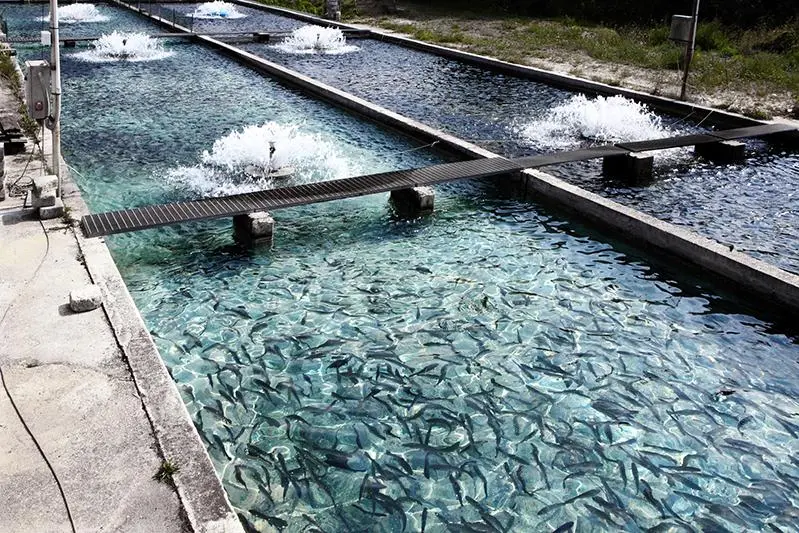PHOTO
The Red Sea Development Company, or TRSDC, will try “a number of fish species,” Ventures Director Michael Slage said, but the focus will be to farm native species that are difficult to farm using traditional methods.
The move builds on an earlier partnership with Austrian biotechnology firm Blue Planet Ecosystems, but the project was delayed due to COVID-19.
TRSDC earlier expressed its plans to promote sustainable practices in all of its operations, including producing sustainable food for the millions of tourists it expects to visit the destination once open.
Slage said they intend to maintain the highest standards in seafood farming, including avoiding the use of pesticides and antibiotics.
“We are looking at using artisanal seafood farming methods like mangrove aquaculture, which plants mangroves, and allows them to act as a natural nursery for native species for example,” he explained.
“Working with nature instead of apart from it like this is what makes aquaculture sustainable and is the only kind of seafood farming we will be doing within the project,” the TRSDC executive said.
Slage clarified they are not expecting to produce mass harvests out of the project, but to just “focus on arming native species and creating new employment opportunities in our communities.”
He added: “As a pathfinder, we can pass on our experiences to aquaculture companies to use to produce large quantities in a sustainable way.”
TRSDC is in discussions with “a number of innovative companies and organizations” to further define a sustainable aquaculture framework, Slage said, while strengthening partnerships with local communities.
These efforts are in line with the company’s core strategy of regenerative tourism – where they actively pursue initiatives that would improve the environment, rather than contribute to its degradation.
“We are working very closely with the Prince Mohamed bin Salman Reserve… to establish the largest no-take marine protected area in the entire region, no just the Red Sea,” Rusty Brainard, chief environmental officer at TRSDC, told Arab News, adding it will lead to recovering marine life population.
He said they are looking for partners and investors to “pioneer recirculating aquaculture systems,” which Brainard described as the most sustainable aquaculture system.
Such systems are usually used in areas where water exchange is limited, with the main benefit of keeping reducing the need for fresh, clean water while maintaining a health environment for fish.
“Fundamentally, we are trying to enhance biological diversity across the entire special economic zone, about 20,000 square kilometers by 30 percent by 2040,” he added, on the sidelines of the Saudi International Marine Exhibition and Conference in Riyadh on Monday.
Brainard emphasized TRSDC’s commitment to helping local fishermen by training them to adopt new skills, which could allow them to qualify for more jobs within the development.
Copyright: Arab News © 2022 All rights reserved. Provided by SyndiGate Media Inc. (Syndigate.info).





















